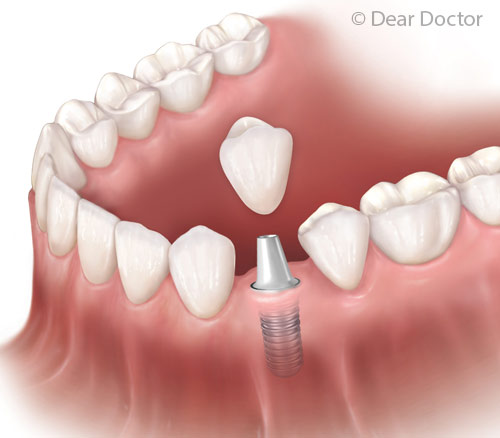Getting older can be less than fun, but it’s something everyone needs to deal with. As we live longer and fuller lives, dental health becomes all the more important. By and large, dental care doesn’t turn inside out when you reach a certain age, but you will have to do more to keep your smile strong. If working out, stretching, or diet changes are already on the table, why not add more vigilant dental care to the list?
Caring For Your Teeth Before You Reach Retirement
The single most important thing you can do to keep your teeth healthy later is to care for them now. If you’ve been procrastinating on brushing more than once a day, or meaning to floss more than once in a blue moon, now is the time to hop to it. Caring for your teeth now will ensure that they are around to serve you well into your twilight years. Be mindful of damaging your enamel, keeping gum disease in check, and keeping receding gums in check.
- Darkened teeth: Expect changes to dentin and a lifetime of stain-causing food and drink to finally show your teeth’s age.
- Diminished taste: Medications, diseases, and other effects of aging can and will make changes in the way things taste.
- Dry mouth: Reduced saliva can be a factor in certain medical conditions including diabetes and cancer treatments. It’s also normal as you age to see a drop in saliva, which can lead to other dental issues.
- Root decay: Tooth decay isn’t exactly a new problem, but it gets more difficult to manage as you get older. Especially if you don’t take care of your teeth when you’re young.
- Gum disease: Plaque buildup can lead to decay and receding gums. Eventually it will lead to loose teeth which means…
- Tooth loss: If you don’t take care of your teeth, you will lose them – guaranteed.
Visiting A Dentist
As you age, it becomes crucial to visit the dentist regularly to ensure that your healthy teeth stay that way. Every 6 months you will want to schedule a regular cleaning and checkup, and to closely follow your dentist’s advice. This is especially crucial if you have already started losing teeth or are using dentures. The dentist will check for loose teeth, and for bumps or lumps that might lead to oral cancer. They should also check with you about changes to your mouth like diminished taste or changes in colour.
Brushing
When choosing a brush, we recommend a soft bristle brush that is easier on your gums. You should brush after each and every meal and this becomes especially important as you age and your enamel wears away. The right brush for you is one that fits comfortably in your hand. If you are suffering from arthritis or find it difficult to hold a brush for the recommended two to three minute cleaning, try wrapping your brush with something to widen the grip or consider an electric brush that is less difficult to use. When brushing, use a forty-five degree angle and try not to scrub too hard. As you age, brushing too hard can actually cause your gums to recede. So if you’re not sure about how much pressure to use, talk to the dentist about the s
Flossing
Flossing should be done daily. Flossing helps you reach the almost one third of your tooth surface area that you’d otherwise miss. It’s never too late to start flossing, and it only takes a few minutes out of your day. To do it well, use a length of floss as long as your arm and wrap it around your middle fingers, leaving about two inches in between. Use your index fingers to guide the floss into place. As you move the floss along your teeth, remember to scrape the side of each tooth several times to get all the plaque off. It’s a good idea to leave more floss on one finger so you can unravel one end and tighten the other, using a new section of floss for each tooth. If you are having trouble gripping the floss due to shaking or arthritis, consider dental tape or a flossing aid like a flossing pick. Failing those options, consider a WaterPik as a good backup.
Implants
Implants are an excellent, relatively recent advancement in dentistry, and are used to replace missing teeth. The procedure involves surgery and is more expensive than dentures, but the result is permanent. Implants work by attaching a metal post into the jawbone, and then attaching the dental implant by screwing it into place. Once in place, the implant will be shaded to match your natural teeth, and filed to match your bite. Most people forget they have implants at all. Implants are stronger than some options, but they’re not as strong as your original tooth, so you have to be careful when caring for them. Flossing is just as important between artificial implants, for instance. You need to be extra careful flossing where the implant meets the gum.
Dentures
If all else fails and you find yourself in need of partial or complete dentures, rest assured that the look and feel of false teeth has improved over the years. Removable teeth are custom made to fit your mouth and replicate the look of your original teeth. Partial dentures will fill select spaces of missing teeth, improving your overall appearance and making it easier to chew your food. Full dentures become necessary when partial dentures or implants becomes impractical or ineffective. In this case you may need to remove any remaining teeth through dental surgery. Even without your original teeth, caring for your mouth is very important. For instance, if you have partial dentures and don’t brush your remaining teeth, that can cause gum disease and inflammation which can make wearing dentures uncomfortable or even impossible. Regular visits to the dentist are required as your mouth is always changing. Don’t forget to report any discomfort to the dentist between appointments.
Looking After Others
If you have an elderly person in your care and are trying to help them with looking after their teeth, here are some helpful tips to consider:
- Speak to the dentist about caring for the person based on their specific needs.
- Go slowly at first and make sure you are communicating clearly.
- Be sure the person you are caring for is comfortable and seated on a stool or chair.
- For real teeth, use a soft or electric brush from behind the patient in front of a mirror and sink.
- Brush slowly and check to make sure your patient is comfortable.
- With dentures, check for cracks before scrubbing and rinsing the dentures.
- After dentures are removed, ask permission to check the patient’s mouth for sores. Use a damp cloth to clean around the gums and check for sores and discoloured areas.
- Dentures can be soaked in a denture cleanser or in warm water overnight.
- Have your patient rinse with warm water when you’re done.
Caring for someone else’s teeth or mouth is difficult, but it gets easier as a relationship forms between caregiver and patient. If you are having difficulty, turn to the dentist for help.
To book an appointment with us
Call us at: +912240147049/09321330133
iDent, Idyll Dental Clinic
Email: smileident@gmail.com
Website: www.smileident.com
iDent, Idyll Dental Clinic
Email: smileident@gmail.com
Website: www.smileident.com





